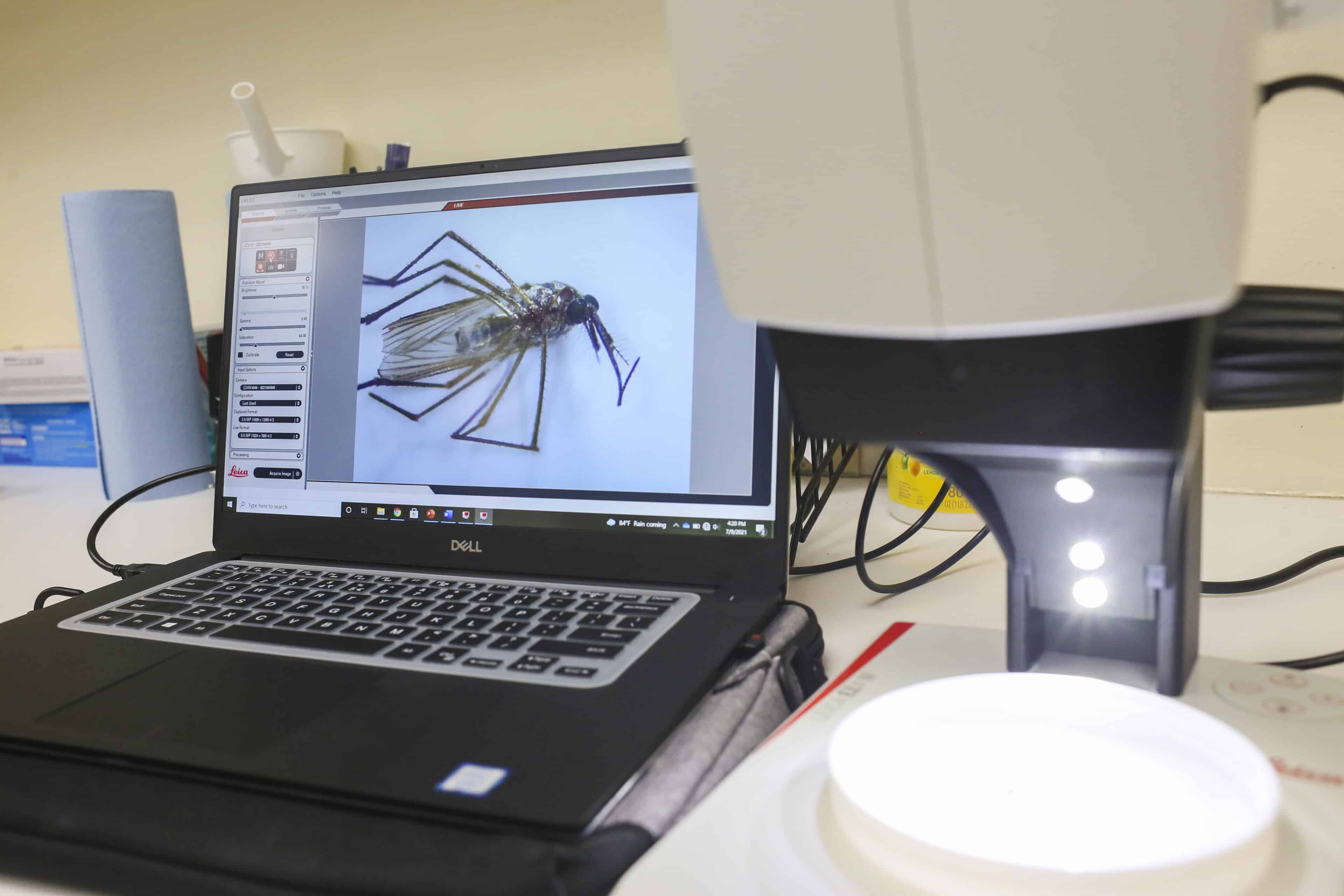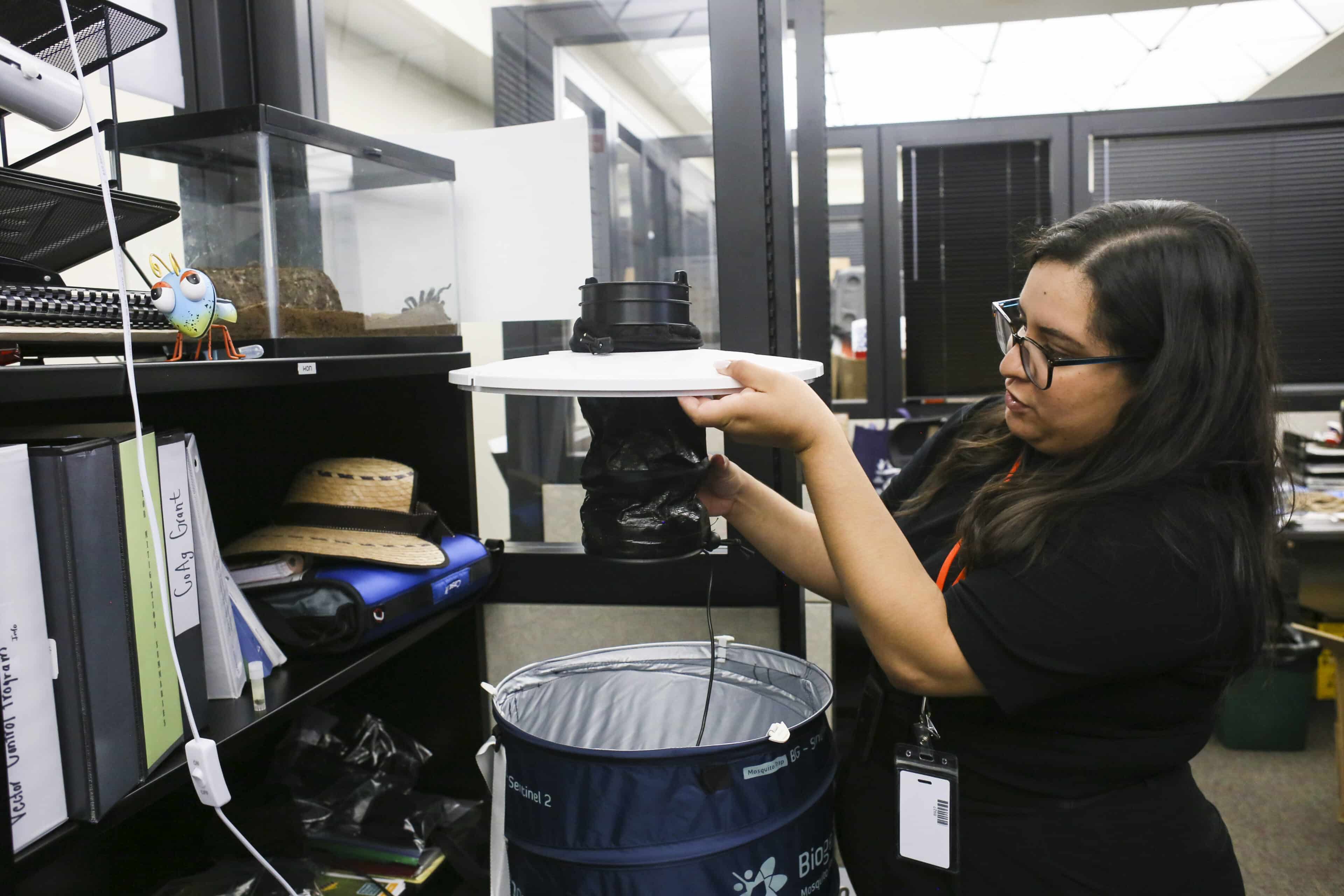From the Brownsville Herald: 
Asian Tiger Mosquito
Brownsville has no shortage of insects, especially mosquitoes, especially after a heavy rain, so it seems like just the place for an entomologist, or studier of insects.
Now the city has one: Yaziri Gonzalez, medical entomologist with the city’s health department, assumed the role in October. The position was made possible by a cooperative agreement grant through the Texas Department of State Health Services stemming from Hurricane Harvey.
As a medical entomologist, Gonzalez is concerned with how insects — mosquitoes, ticks, fleas, kissing bugs — impact health in terms of vector-transmitted diseases known as arboviruses. Understandably, with the heavy rains in the city and the region over the last week, she’s got mosquitoes in particular on her mind these days, namely the yellow fever and the Asian tiger mosquitoes, which between them can transmit Zika virus, dengue virus, West Nile virus and chikungunya.
Years ago mosquito surveillance and testing was done on monthly basis in Brownsville until 2016, when Zika was detected here and surveillance was stepped up, with daily mosquito traps at around 100 sites, Gonzalez said. In her position with the health department, one of her top goals is to set up on-site arbovirus testing as soon as possible.

A large sample, or pool, of trapped mosquitoes are tested by DSHS and the University of Texas Rio Grande Valley from May to November to identify the species and look for arboviruses. Gonzalez noted that an arbovirus-positive mosquito pool doesn’t necessarily indicate a human arbovirus case, since only 1 percent of the insects are competent vectors capable of actually transmitting a disease. But last year she was able to continue speciation — the process of identifying species — from December to the end of April, she said.
“This is important, as different species transmit different arboviruses,” Gonzalez said. “We need to have an idea of what is out there during these ‘dormant’ months.”
Historically the city has sent out mosquito fogger trucks after every big rain to kill the adults, and also treated flooded ditches and other stagnant water around the city to kill the larvae, though now the approach will be a bit more scientific, conducting spraying and spot-treatments in water based on the number of mosquitoes found in traps and calls from residents, she said.

It’s possible to over spray for mosquitoes to the point that the insects become resistant to the insecticide, Gonzalez noted.
“We want to completely avoid that,” she said. “When we did our testing in 2019 it showed that our chemical that we use is still effective. We kind of want to keep it that way and we don’t want to continuously be spraying. Because I know in some neighboring cities they do regular spraying, which is not a recommended plan when dealing with vectors, especially those that cause human-borne illnesses.”
It’s more effective to target mosquitoes in their larval stage since they’re contained and not on the loose, and also it’s very difficult for larvae to form resistance to the type of bacteria, BTI, that the city uses to treat stagnant water where larvae are found, Gonzalez said. Large, rotting piles of brush around the city, a lingering aftermath of the vegetation-destroying February freeze, have made the mosquito problem worse, she said.
“It’s not just an eyesore, it’s a breeding ground for mosquitoes, because the water will collect in the bottom,” Gonzalez said. “It’s a perfect breeding ground because all of the organic, decomposing material that gets in that water, mosquitoes love that.”
Arbovirus-transmitting mosquitoes also like dumped tires full of water, and during the day they’re partial to shady places — yards with lots of plants for instance, she said. But residents can and should do their part to help combat the menace: Keep the grass mowed. Dump out the standing water.
“After rains make sure you go around your house and do like a quick look around to see if you have stagnant water,” Gonzalez said. “At least on a weekly basis after it’s rained, take a look around your property for anything that has at least a teaspoon (of water). That’s all a mosquito needs to breed.”
Residents with concerns about mosquitoes, ticks or other disease-spreading insects should contact the city help line at (956) 546-4357.



.png)
No comments:
Post a Comment